|
A few weeks ago, the Pew Research Center released an article titled “Just one-third of U.S. Catholics agree with their church that Eucharist is body, blood of Christ.” Immediately after the study’s release, social media erupted with reactions of disbelief, shock, and anger, as well as theories of how to “fix this,” including greater catechesis and adjustments to our general liturgical practices. Despite the immediate reaction, there is no need for panic, as Christ assures the Church that “the gates of the netherworld shall not prevail against it,” (Matthew 16:18). Furthermore, jumping to such dire conclusions after one survey is not necessarily good pastoral or catechetical practice. As the Church examines the status of belief in the Real Presence and how to cultivate a greater understanding of that reality, she is also very aware of the need to deepen our encounter with Christ. As we ponder Christ’s presence in the Eucharist, we must ask ourselves if we have truly encountered him. In his encyclical letter Evangelii Gaudium, Pope Francis suggests that we “look at those first disciples, who, immediately after encountering the gaze of Jesus, went forth to proclaim him joyfully: ‘We have found the Messiah!’ (Jn 1:41).” In the end, how we catechize and what our liturgical practices are both require deeper reflection and greater discernment as to how God is calling us to use them as methods of ongoing conversion and evangelization. The doctrines and dogmas that we teach, how we celebrate the Mass, how we best serve our fellow man, are all likely to fall on deaf ears if they are not built on a deep and personal encounter with the Risen Christ. To examine this issue of Eucharistic belief, we should first look to chapter 4 of Christus Vivit, where Pope Francis reminds young people (and all of the people of God) that God is love, he saves us, he gives us life, and he is alive! If these four truths, which are expounded upon in good catechesis and experienced in their fullness in the Mass, are not understood deeply and intimately in the heart of every baptized Catholic, then moving forward will be extremely difficult. If I do not know Christ as the one who saves me, who walks with me through my life, as the one who gives me life, then why does it matter if it is truly his Body and Blood that I receive in its fullness at the Mass? Similarly, if we don’t understand the Kerygma—the mystery of the salvific work of God culminating in the passion, death, and resurrection of Christ—then how can we begin to understand the mystery of transubstantiation (CCC1376), especially when philosophical distinctions like matter and form aren’t in the everyday vocabulary of most Catholics? Pope Francis reminded pilgrims of this reality during a November 2017 General Audience when he said, “Every celebration of the Eucharist is a ray of light of the unsetting sun that is the Risen Jesus Christ. To participate in Mass, especially on Sunday, means entering in the victory of the Risen, being illuminated by his light, warmed by his warmth.” Pope Emeritus Benedict XVI famously wrote in his encyclical letter Deus Charitas Est, “Being Christian is not the result of an ethical choice or a lofty idea, but the encounter with an event, a person, which gives life a new horizon and a decisive direction.” I certainly don’t have the “easy fix” answer as to how to increase belief in the real presence in the Eucharist, but I heartily believe that it begins with a renewed sense of the encounter Pope Benedict XVI was writing about. We use the word “renewed” because even those of us who profess our faith in the Risen Lord are invited “to a renewed personal encounter with Jesus Christ, or at least an openness to letting him encounter them; I [Pope Francis] ask all of you to do this unfailingly each day” (Evangelii Gaudium). We must witness to the encounter that has given our lives “a new horizon and a decisive direction,” and share that with those whom we meet. When we accompany our brothers and sisters on their journey to know Christ more fully, we help them to encounter him in the way that the Holy Spirit guides them. If that encounter is through theological and philosophical distinctions, through service, through the liturgy, etc. then praise God, because it is through him that those are effective and not because of their own merits. As we continue to wrestle with this recent study and its implications, may we meditate on this: if we believe that the Eucharist changes us, strengthens us, heals us, then we must show it, we must witness to it authentically and humbly in all circumstances. **This blog was originally published on August 29, 2019.**
0 Comments
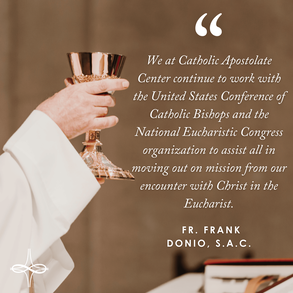 The National Eucharistic Revival in the United States moved into its second, or parish, year on the Solemnity of the Most Holy Body and Blood of Christ. In July 2024, the Church in the United States will hold a National Eucharistic Congress. We at Catholic Apostolate Center continue to work with the United States Conference of Catholic Bishops and the National Eucharistic Congress organization to assist all in moving out on mission from our encounter with Christ in the Eucharist. On Monday, June 19, Pope Francis met with the organizers of the Congress and offered these and other important insights. His words are quoted here at length and should be reflected on often. “It is my hope, then, that the Eucharistic Congress will inspire Catholics throughout the country to discover anew the sense of wonder and awe at the Lord’s great gift of himself and to spend time with him in the celebration of the Holy Mass and in personal prayer and adoration before the Blessed Sacrament…. I likewise trust that the Congress will be an occasion for the faithful to commit themselves with ever greater zeal to being missionary disciples of the Lord Jesus in the world… This is the sense of a missionary spirit. You go to the celebration of Mass, receive communion, adore the Lord and then what do you do after? You go out and evangelize. Jesus asks this of us. The Eucharist, then, impels us to a strong and committed love of neighbor. For we cannot truly understand or live the meaning of the Eucharist if our hearts are closed to our brothers and sisters, especially those who are poor, suffering, weary or who may have gone astray in life” (Pope Francis, Greeting to the Organizing Committee of the National Eucharistic Congress in the United States of America). May the Charity of Christ urge us on! In God, the Infinite Love, Fr. Frank
I spent my high school years at an all-boys Jesuit school in downtown Cleveland. It was an excellent experience where I met some wonderful people, had lots of fun, and started to be formed into the man I am today. Amidst all the craziness that came with going to school with fifteen hundred teenage boys, some of my fondest memories come from my time spent in a little chapel hidden in the hallway of one of our main academic buildings. Every week during free period, the Jesuit priests celebrated daily Mass in this little chapel for our school community. It was a very small space, maybe fitting twenty people if it was really packed. Some days it was full of faculty, staff, and students, but there were a handful of times when it was just the priest and me.
There is something quite unique about celebrating the Eucharist in such an intimate setting, especially when it is just you and the priest. First, there is enormous pressure to get all the responses right, as there is no one to back you up if you forget a line in the Penitential Act. Additionally, it feels like you are right up close to the action, not only seeing what the priest does, but even hearing some of the extra prayers that priests usually say to themselves in a larger setting. Looking back on these memories, these Masses are a reminder that the Mass is not just a nice occasion for Catholics to gather for an hour to pray together. The Mass is the eternal worship of the Son to the Father; through the priest, Jesus’s Paschal Mystery is made present, and the perfect love of the Trinity is on full display. In this sense, the Eucharist is not about us just eating a little piece of bread we believe to be Jesus’ body; it is about the Father and Son’s perfect love for one another, which does not depend on whether there’s one person or one thousand in the pews. While these small, intimate Masses hold a special place in my heart, something about them felt incomplete. There was no one to shake hands with at the Sign of Peace. Mine was the only voice responding as the Holy Scriptures were being proclaimed, and receiving Communion took about fifteen seconds. This reveals the mysterious truth that while the Mass is primarily the eternal worship of the Son to the Father, because of the Incarnation and Paschal Mystery we are destined to be united with Christ in His worship of the Father and the love of the Holy Spirit. When we go to Mass, we are brought into this divine mystery not just as individuals, but as a community. The Eucharist is the Body of Christ, and it brings us members of the Church (also the Body of Christ) into deeper communion with God and with one another. Considering this, I’d like to suggest three different levels on which we might view the Mass. At the end of the day, these are all describing the same Eucharistic mystery, but it may help us to truly appreciate what is going on when we go to Church. First, we witness up close the eternal worship of the Son given to the Father through the Holy Spirit. The powerful, mysterious, life-giving love of the Trinity is on display, which is quite simply mind-blowing. The God who spoke the stars into existence and took on flesh to save us has come close to show us His inner life. Secondly, we don’t simply watch all of this happen, but we actually get to receive it. This happens through the proclamation of the Scriptures, where we receive God’s word, and then through the reception of the Eucharist, where Jesus’s flesh and blood mingle with ours, and we receive the very life, love, and peace which we witness in the Trinity. Thirdly, we are gifted with the ability to experience all of this not just on our own, but alongside our brothers and sisters. Jesus came not just to reconcile humanity with God, but also to reconcile us with one another and with ourselves. So there is a level where God is relating to God, a level where God is relating to me, and finally a level where God is relating to all of us together, and we relate to one another. So next time you go to Mass, ask the Holy Spirit for the grace to truly see the different layers of divine activity at play in the Eucharistic celebration. Ask for the grace to see that Mass is more than just a gathering of believers. Ask for the grace to see God’s jealous love poured out for you as an individual in the Eucharist. Ask for the grace to see how the Eucharist unites us as the Church. The Eucharist is not about us, but it also is. God desperately desires to draw us into His love and communion as one Church, and in the Eucharist, He has given us an incredible gift which does just that. May we let Him draw us in. 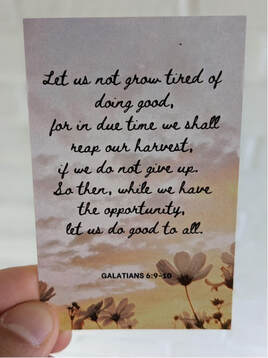 My wife and I made this prayer card for our parish to be distributed to parishioners this Easter. Our parish merged with another two years ago and we are still finding our way together as a new community. It is a time of transition, having lost familiar parishioners while gaining new ones along with a new pastor. We chose this passage from St. Paul’s letter to the Galatians because the verse speaks to a time of renewal, like spring, for our lives as Catholics today. The Eucharistic Revival is a time of renewal, a time to reawaken and deepen our relationship with Christ in the Eucharist. One opportunity to do this is by doing good to others. Sacraments and Social Mission: Living the Gospel, Being Disciples, a document created by the U.S. Conference of Catholic Bishops, explains that there is an intrinsic connection between the Eucharist and charity. The chapter on the Eucharist takes an excerpt from Pope Emeritus Benedict XVI’s encyclical Deus Caritas Est: “A Eucharist which does not pass over into the concrete practice of love is intrinsically fragmented” (no. 14). Amidst the frustrations and fatigue we bear due to what is going on in the Church and the world, God presents us with new opportunities to begin again. Like flowers blossoming and trees budding in the spring, our spirit is renewed each time we encounter Christ in the Eucharist. But flowers and trees need to be nurtured and so does our relationship with Christ in the Eucharist. To nurture costs love—giving our entire self. Christ gives his entire self in the Eucharist, and we are called to do the same in the world by being his hands and feet for others. Holy Thursday is special for me because I always hold on to the last two verses of the reading from John 13: “If I, therefore, the master and teacher, have washed your feet, you ought to wash one another’s feet. I have given you a model to follow, so that as I have done for you, you should also do” (Jn 13:14-15). Jesus gives us a model for discipleship. Reflecting on the Triduum, I think of how tired Jesus must have been throughout his Passion. He could’ve stopped at any point from exhaustion, but he persisted. If we truly desire to follow him, do we raise reasons for ourselves to stop? Perhaps it is frustration or fatigue. We are human and those reasons are to be expected, but we are not limited by or bound to them. To be disciples, Jesus calls us to never tire. Each day is a new opportunity to do something good. It does not have to be something big, but we need to start in order for that good to blossom. I offer a quote for reflection by Servant of God Dorothy Day: “Young people say, what good can one person do? What is the sense of our small effort? They cannot see that we must lay one brick at a time, take one step at a time; we can be responsible only for the one action of the present moment. But we can beg for an increase of love in our hearts that will vitalize and transform all our individual actions, and know that God will take them and multiply them, as Jesus multiplied the loaves and fishes” (Dorothy Day, Loaves and Fishes, 176). During this Easter and Eucharistic Revival, a time for renewal, I hope we reawaken and deepen our relationship with Christ in the Eucharist through small acts of charity. When we receive Christ in the Eucharist, may this relationship of love extend to charity towards those we encounter in our community. If we ever tire, may it be an opportunity to draw closer to Christ. Let us not tire of starting over again to do good. I hope our parishioners will find similar inspiration as we continue growing together as one faith community.
“Dear young people, the happiness you are seeking, the happiness you have a right to enjoy has a name and a face: it is Jesus of Nazareth, hidden in the Eucharist. Only He gives the fullness of life to humanity!” – Pope Benedict XVI, Address to Young People, Apostolic Journey to Cologne on the Occasion of the 20th World Youth Day
Growing up as a cradle Catholic, it was always easy to take the Eucharist for granted. Even though I recognized the true presence, it was tempting to see Holy Communion, adoration, and Jesus being present in the tabernacle as a bonus to the faith and not the foundation of the way I lived my life. Now that I serve in youth ministry, I see that this line of thinking too often becomes the norm for young Catholics. But what happens when young Catholics live a life centered around the Eucharist, when they allow themselves to be consumed by Christ, finding complete freedom in complete surrender? They begin to live in their identity as beloved sons and daughters. I got to witness this transformation firsthand this summer serving as a missionary with Catholic Youth Summer Camp. Every week, I watched middle school and high school students meet Jesus in the Eucharist for the first time, experiencing His love and feeling the truth of their identity in a real, tangible way. And every week after these experiences, there was a shift in the way these kids lived their lives. It was as if they were no longer afraid of being judged or not accepted by the teenagers around them; instead, they were confident in the sufficiency of the love they felt from God. When the campers started to recognize and feel the truth of their identity as sons and daughters, when they realized that they can look into Jesus in the Eucharist and physically see that truth, they no longer cared about the opinions of the people around them and would do whatever brought them joy. This often looked like the small but life-changing steps of fully entering into the Mass and worship, taking times of prayer seriously, and having childlike fun and joy throughout the day. Throughout the summer, I began to realize that the experience that these teenagers had in their first moment of encounter with Jesus, the childlike joy and freedom they experienced, is not an experience for them—or for children—alone. All of us, including You and I, are all seen by the Father as His beloved daughters and sons, and He desires to show us that truth and the love He holds for us in a real, tangible way through the Eucharist. Every time we receive Jesus into our bodies, every time we spend time gazing into His face in adoration, we give Him the opportunity to remind us of how unconditionally loved we are, how we belong with Him and nothing else. These truths give us the freedom to not fear what waits in the world, nor fear the chains of sin or worldliness. They help us recognize that there is no fear in the perfect love we experience living in Jesus Christ, and the only thing we have to worry about is following His will. When the world is not something to fear, we can recognize creation as the gift that it is and receive what the Lord has waiting for us. The next time you go to Mass or adoration, recognize that Love Incarnate is entering you in order to prove just how far He’ll go to show that you belong with Him. Allow that truth of His unconditional love and your belonging in it to shape the way you live your life, embracing the freedom He has won and given to us.
|
Details
Archives
July 2024
Categories
All
|
About |
Media |
© COPYRIGHT 2024 | ALL RIGHTS RESERVED

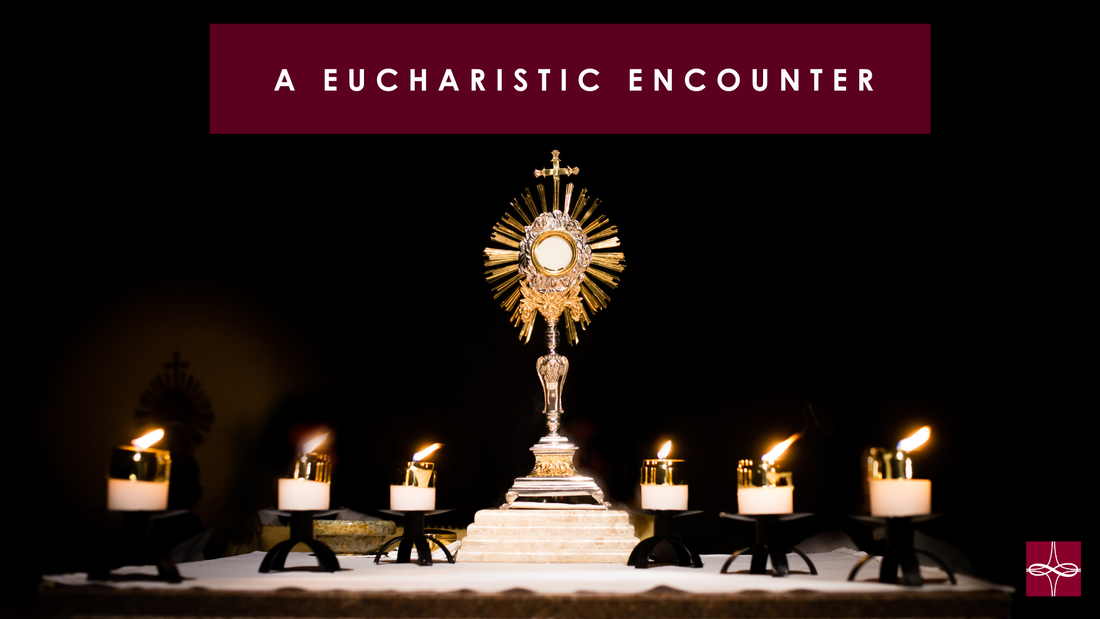
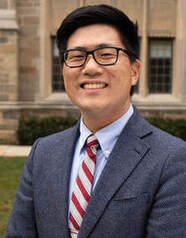
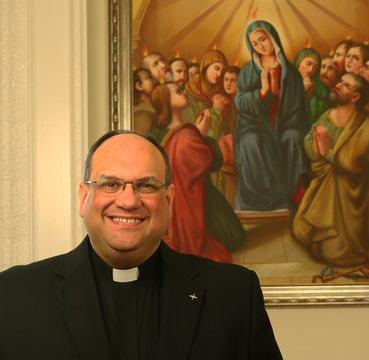
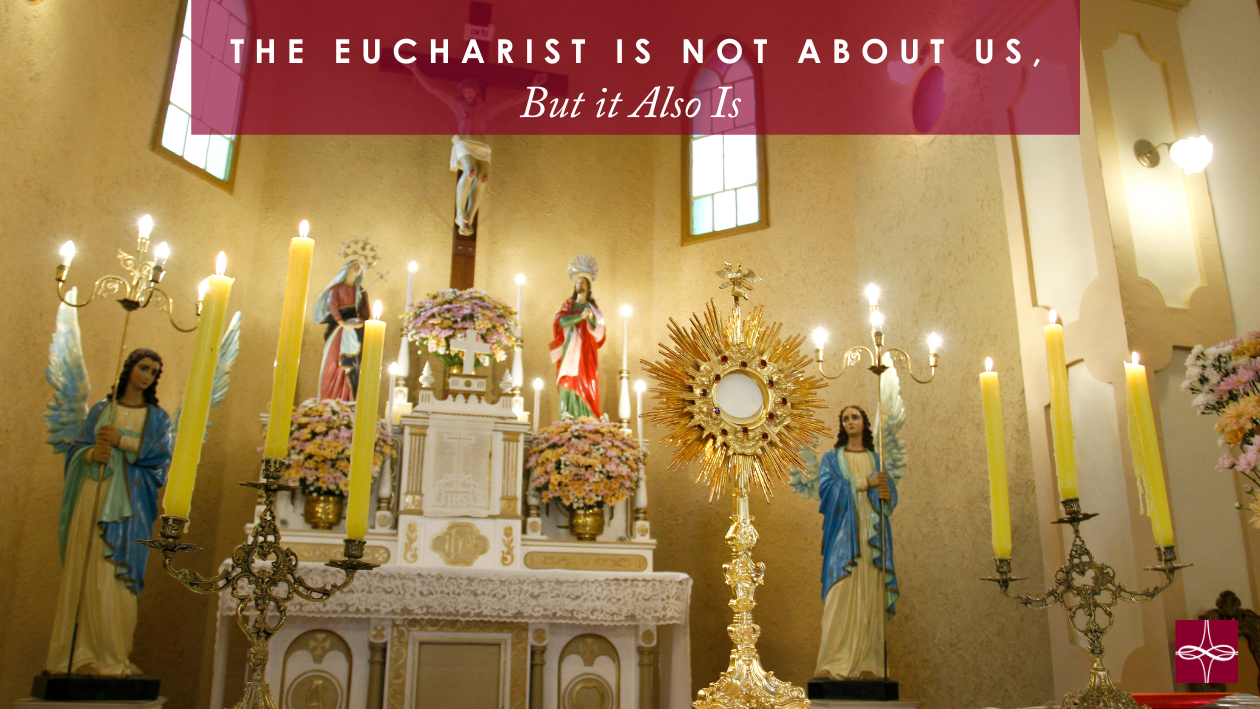
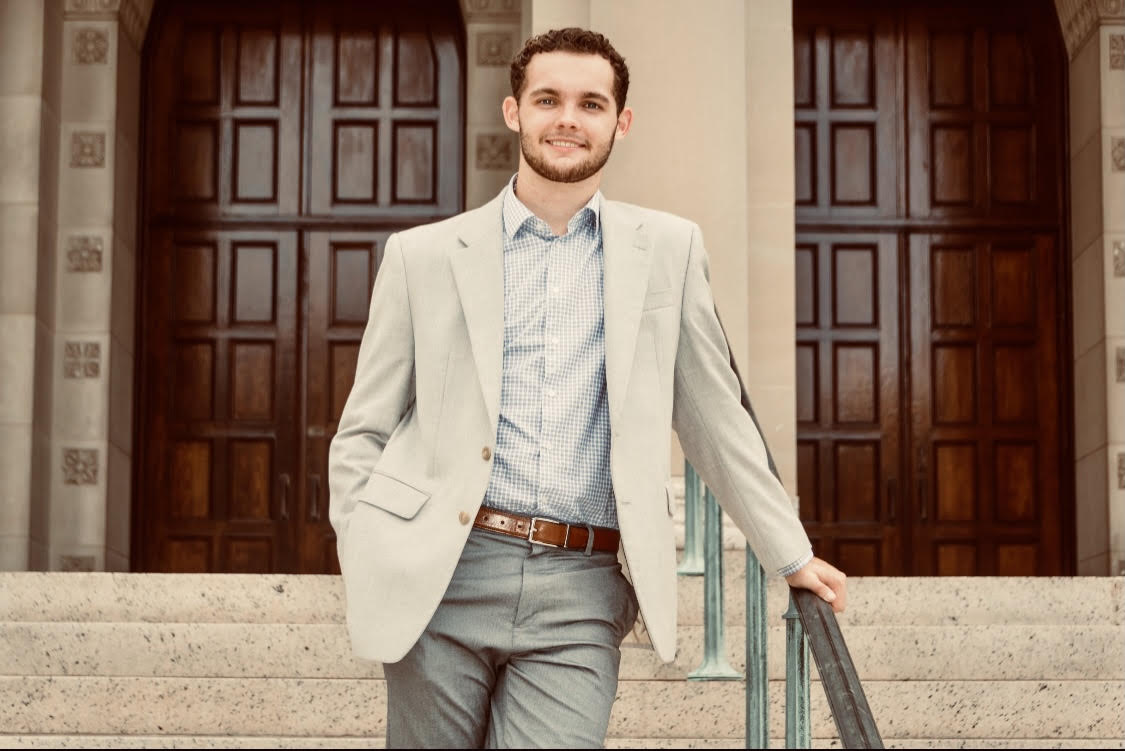
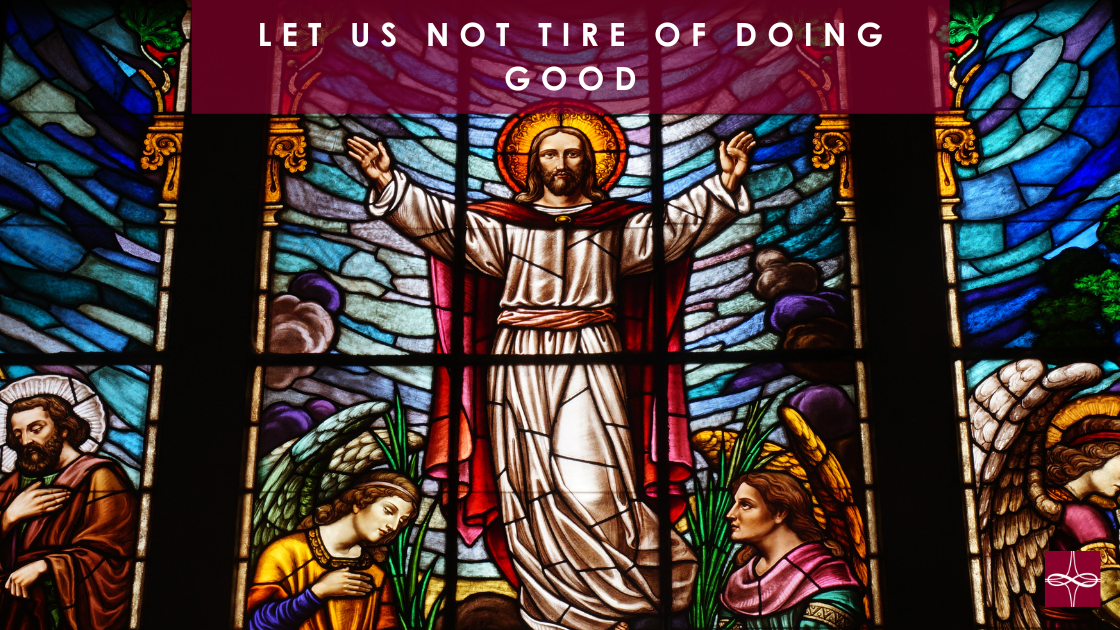

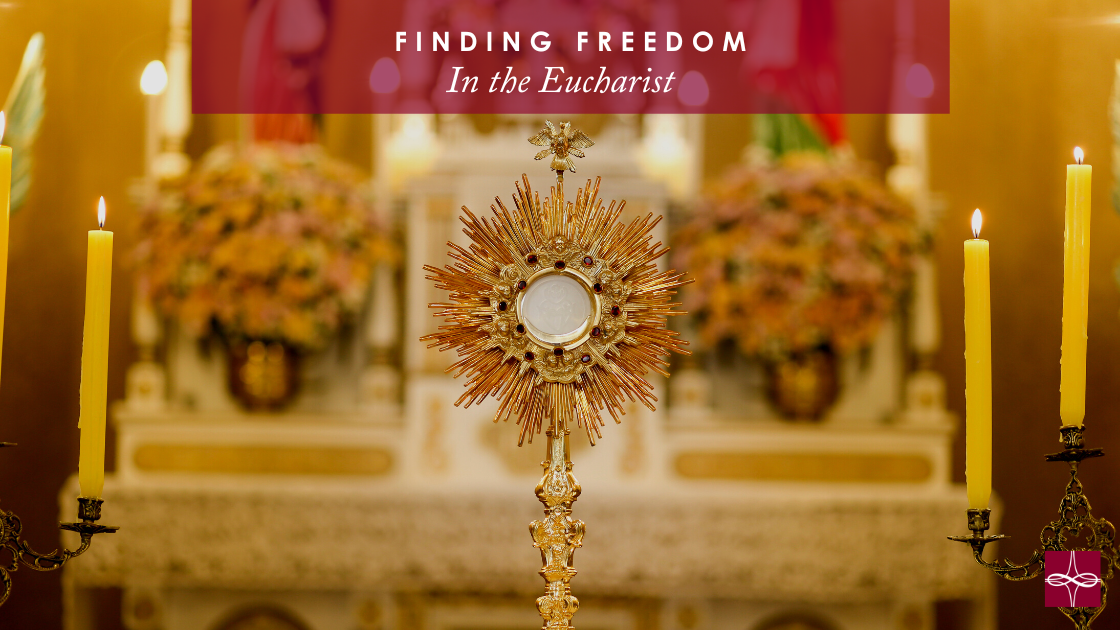

 RSS Feed
RSS Feed